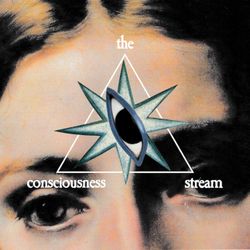Share
![cover art for has adulthood robbed you of youth’s magic? (reclaiming healing in unscheduled moments) [premium preview]](https://open-images.acast.com/shows/60e8deaefb090f0013116d69/1735679446378-b2e8272f-396f-4979-a13e-2172ecffa88e.jpeg?height=750)
Back From The Borderline
has adulthood robbed you of youth’s magic? (reclaiming healing in unscheduled moments) [premium preview]
Have you ever wondered why the carefree days of your youth felt so magical? Those spontaneous adventures with friends, the endless walks, and the impromptu activities that seemed to hold a unique kind of freedom—where did they go? In this episode, we’ll explore the essence of these priceless experiences and their crucial impact on our development and mental health.
Think back to your teenage years, when unplanned hours fostered a sense of joy and liberation. Walking through city streets, hanging out in parks, and engaging in spontaneous adventures created lasting memories that shaped your friendships and identity. But what happens when this bubble bursts, and the reality of adulthood, with its demands and responsibilities, hits us like a freight train? I'll delve into how these interruptions mark the end of innocence and the beginning of a purpose-driven life.
As we transition into adulthood, free time fades away, replaced by the constant push for productivity and the omnipresence of screens. I’ll examine how smartphones and the internet have taken over physical hangout spots, and how societal pressures have squeezed out those precious, spontaneous hours. The decline of these carefree periods has devastating effects on our psychological well-being and relationships.
Remember the brief return of unstructured time during the COVID-19 pandemic? When the world stood still, many of us rediscovered the joy of unplanned activities, creating cherished memories amidst the uncertainty. But as life resumes its structured norm, we struggle to find meaning in our time again. This episode reflects on that period and underscores the need to balance structured activities with free play.
TIME STAMPS:
00:00 – 24:51.67: PART 1 (Exploring the concept of 'non-time' in teenage life, the freedom and joy of unstructured time, activities that fill this time, the reality check of external intervention, and the transition to adulthood including societal expectations, responsibility, and the decline of unstructured time.)
24:51.67 – 54:56.26: PART 2 (Discussing the mental health and social implications of losing unstructured playtime, the brief return of non-time during the pandemic, cherished memories amidst crisis, the return to structured time and productivity pressures post-pandemic, questions for reflection, and strategies to reclaim unstructured time.)
Craving more? Become a Premium Submarine. Join an exclusive community and unlock hundreds of hours of members-only content: full-length episodes, deep-dive series, guided meditations, and more—all for the cost of a couple of coffees a month. Start exploring at backfromtheborderline.com.
More episodes
View all episodes

why everyone is hot and no one is happy: bodies as product, desire as labor (pt 2)
01:08:49|Dating right now feels exhausting for a reason. Everyone is optimizing themselves (bodies, faces, profiles, vibes) and still walking away from relationships feeling disconnected or quietly resentful. This is part two of an exploration into why everyone is hot and no one is happy. (You can listen to part 1 here.)In this episode, we’ll expose the modern machinery selling us how to view desire itself. We take a look at how men and women are trained to treat their bodies like projects and why the “ideal” keeps changing without ever delivering real genuine intimacy. Topics include a deep dive into the “fembot” fantasy, gym culture, porn saturation, dating apps, and the profound loneliness that takes root when people are constantly visible but rarely felt and seen in any meaningful way.You’ll gain an understanding of exactly how these dynamics feed anger and polarization, leading both men and women to keep misreading (and hating) each other, and why dating now feels like a zero-sum game. This is the system we’re all operating inside. Desire doesn’t have to feel like a job, it can start feeling like something human again, if only we collectively wake up to the psyop being spoon-fed to us by culture and media.⚠️ THE MOODS WAITLIST OPENS JAN 21 2026Note: We are admitting members in small, manual batches. Once a batch fills, the gates close until the next cycle. The sooner you get on the list, the sooner you get in.Go to: https://moods.world/
Sex in the Third Person: Why You Leave Your Body to Watch Yourself Perform
22:33|If you have ever felt like you were watching yourself perform intimacy from a camera lens installed in the ceiling, this is the episode you've been waiting for. Together, we’ll be diagnosing a very specific, silent fracture in the modern psyche: the gap between edibility (how delicious you look to others) and appetite (what you actually hunger for).For a generation raised in the digital Wild West, we learned very early on that safety comes from being a "Good Object.” (The goal being to be pleasing and curated.) But the tension required to maintain that image is physically incompatible with the softness required to feel actual pleasure.We’ll go beyond the standard (and extremely played-out) "empowerment" scripts to look at the darker root causes of why we leave our bodies during sex. We explore the "millennial psyop" of early internet conditioning and the concept of functional dissociation.From the esoteric concept of the Eidolon (the phantom double) in Greek mythology to a shocking historical reframe involving Napoleon Bonaparte’s (kinky af) letters, we’ll dismantle every aspect of performative sex. This episode is your permission to stop performing for a ghost and finally inhabit the first person.UNLOCK THE FULL EPISODE ON PATREON, CLICK HERE (or visit patreon.com/backfromtheborderline). To know as soon as we drop the MOODS waitlist, follow us on Instagram at @moods.codex.
why everyone is hot and no one is happy: the men women want (part 1)
57:27|Modern dating is currently stuck in a strange paralysis. Everyone looks better than ever, but actual desire is missing. Men are told to become sculpted superheroes to win affection. Women are told they should want them. Almost no one is satisfied with the result. This is part one of an investigation into why.In this episode, we bypass the gym-optimized fantasy to look at the figures that actually haunt the female imagination. We examine the Wounded Romantic and the Beautiful Monster. We also uncover the "missing third" option that rarely gets airtime.We track the Gothic lineage of the female gaze to answer an uncomfortable question. Why do we feel so pulled toward men who feel dangerous and damaged? Why does safety often feel boring while the wound feels like chemistry? It's time to understand where our fantasies actually come from. The sanitized stories we’re fed about attraction no longer match our lived experience.To join the MOODS waitlist, follow us at @moods.codexJoin the BFTB Patreon community and become a Premium Submarine, where you’ll unlock hundreds of hours of paywalled content I’ve been building since 2021.⟁ Visit backfromtheborderline.com for free resources, updates, and everything else I offer. Or go straight to patreon.com/backfromtheborderline to join now.Once you’re in, you’ll get a private feed you can add to Spotify, Apple, or your favorite podcast app, so you can listen to every episode I’ve ever released, all in one place. ⟁
The Voice You’re Using Isn’t Yours
23:28|Most people move through their day assuming the voice in their head belongs to them. The commentary that explains our reactions, the phrases that seem to pop in our minds when we’re about to speak. Even the language we use to justify what we feel, and why we choose to keep going inside this confusing-as-hell human experience in our meat suits. All of that comes from inside us, right?The disconcerting reality is that if you spend enough time listening to yourself think, you realize that the voice you hear feels weirdly…. Standardized. It’s almost as if it was absorbed for you gradually over time, without your permission.This episode looks at exactly how that voice is formed through repetition and pressure through environments that reward quick knee-jerk responses and the illusion of “certainty.” The thesis here is that our language has become something we’ve inherited, no longer something we author ourselves.Together, we’ll explode what it takes to break this collective spell and what it might require for us to learn how to speak from a place within that feels self-directed instead of conditioned.✧ WANT THE FULL EPISODE? ✧Every week, I share these extended episodes on Patreon. If what you’ve heard here has helped or intrigued you, the full version is where the real magic happens. Your support keeps my work independent and ad-light. Support from my Patrons is how I fund my life and make sure what I do stays honest, unfiltered, and as listener-powered as possible. Head to patreon.com/backfromtheborderline to sign up today. Search the episode title and keep listening.(Tip for iPhone users: sign up through Safari or Chrome to skip Apple’s extra fees.)
The Cool Girl Myth and Trend Culture as Self Abandonment
01:10:29|Trend culture these days moves faster than any of us can keep up with. What was framed as essential a few months ago is quickly recoded as dated or embarrassing, replaced by a new “aesthetic.” For many of us, this produces that dreaded feeling: plenty of clothes, but very little (or no) sense of personal style. But I’m here with a spoiler alert for you, my lovely listener. The problem is not your taste level, it’s the system.This episode draws on my firsthand experience working inside fashion PR (albeit for a very brief time.) Yes, I had my very own Andy Sachs moment. And no, it was not nearly as glamorous as hers was. You’ll learn how “cool” is less a mystery and more of a series of controlled decisions about who gets seen, when and why. Participating in this f*cked up Truman show reveals the harsh reality. Which is that the more closely you follow trend culture, the less stable your sense of Self becomes. But what do I know? I’m just a millennial in my thirties. Maybe I’m just chopped and unc.As always, we will approach all of this material sideways instead of straight on, through depth psychology, myth, and understanding of how symbols become powerful (in a truly occult sense) when we repeat them enough. Trend culture is very ritualistic. It’s a kind of shared spell that rewards constant self-editing and treats adulthood like something we should do anything to postpone. Following that logic to its end exposes the paradox at the center of the “Cool Girl” fantasy, which is that the fastest way to lose any sense of yourself is to keep trying to become her, and that real maturity (the unmarketable kind) is what quietly returns your style, and your authority back to where it has always belonged. To you.Follow @moods.codex on Instagram to be the first to sign up for the waitlist. We’ll be posting updates about the launch there.
the cassandra curse: feeling “crazy” when you’re actually right
22:02|For the highly sensitive, intuitive, and intense people among us, our greatest gift is often the source of our deepest interpersonal suffering.We pick up on invisible tells and subconscious subtext that others miss. We can just feel when the energy shifts. But when we try to speak that truth to the person on the other end, we often make the mistake of outsourcing our validation. We get upset that they aren't seeing our version of reality, and inevitably, we get labeled "crazy." The tragic irony here is that the harder we fight to prove we are sane, the more we fulfill the “prophecy.”In this episode, we’ll be stepping as far away as possible from diagnostic labels and looking at this dynamic through the lens of ancient mythology, depth psychology, and alchemy. We’ll dissect what I’m calling “The Cassandra Curse.” The archetype of the prophet who was doomed to see the truth, but whose own reaction turned her own story into a tragedy.We explore:· The Self-Sabotage Loop: How we turn a valid intuition into an explosion that destroys our credibility (and how to interrupt it)· The Control Trap: Why trying to "force a confession" out of someone is actually a form of control· Pearls & Swine: Why we keep handing our highest currency to people who aren't ready to receive it· The Transformation: How to move from the Hysterical Victim archetype to the Sovereign Priestess who trusts her own intuition and doesn't need anyone else to sign off on her reality for herIt's time to stop trying to prove you're right just to make others wrong and start trusting what you see and letting that be enough. To listen to the full episode, sign up for Patreon at patreon.com/backfromtheborderline. To make sure you're one of the first to sign of for the waiting list for MOODS, follow us on IG at moods.codex.
why you can’t relax: the 5 survival spells running your life
01:07:01|These five “survival spells” once kept you safe. Now they’re quietly running your life.Many adults live with a constant undercurrent of tension. Rest feels conditional. Even moments of safety carry a sense of hypervigilance. This episode explores the internal logic behind that state that so many of us are trapped in.Together, we’ll examine five psychological illusions that often shape adulthood beneath our conscious awareness: control, performative identity, scarcity, isolation, and perfectionism. Each one of these strategies are formed for a particular reason. Each also solved a very real problem at an earlier stage of our lives. Over time, these patterns harden into rules and internal scripts that determine how much ease and connection feel permissible for us.Rather than approaching these patterns as pathologies (which is all too common in our modern culture), this conversation treats them as intelligent adaptations with a mythic structure. Survival morphs into a spell while adulthood becomes a role that requires our constant micromanagement.Drawing from depth psychology, nervous system awareness, and symbolic thinking, this episode offers language for experiences that often feel impossible to put into words. It follows how modern life rewards vigilance while eroding the very conditions required for genuine rest, and how recognizing the underlying workings of these inner contracts changes the way they operate within you.The goal is here is not to “fix.” I think we’re all tired of trying to fix ourselves. What we want to do in this episode is to open up to inquiry. Meaning tends to emerge through recognition. The real work begins with seeing what has been quietly organizing your inner world in the background for your entire life without you being aware of it at all.That’s the spell. Let’s break it together.And before you go, don’t forget to follow @moods.codex on Instagram to be the first to hear when the waitlist opens for my new inner work app.
why you’re obsessed with people who can’t love you back
01:08:02|This episode examines limerence not as a personality flaw or a trendy attachment term, but as a learned psychological strategy that begins in childhood. Rather than treating obsession as irrational, we explore how it develops as a way to survive inconsistent, misattuned, or emotionally absent parenting, and how that same strategy later shows up in adult relationships.This phenomenon explains why so many of us become fixated on emotionally unavailable partners and why the end of even a short relationship (or even a situationship) can feel devastating in a way that doesn’t match the actual reality of the situation. It’s why obsession often gets mislabeled as “love” or “passion.” We look at how the mind uses fantasy and idealization to stabilize itself and why emotionally unavailable people reliably trigger these patterns.What This Episode CoversWhat limerence actually is (and what it isn’t)Why obsession often forms around people you barely knowHow childhood coping strategies turn into adult romantic fixationThe role of emotional unavailability and intermittent reinforcementWhy intensity gets confused with intimacy and “fate”How fantasy and projection stabilize the nervous systemThe overlooked spiritual dimension of limerence and devotionWhat it means to finally step out of the pattern without self-blameUNLOCK BONUS EPISODES, VOICE NOTES & THE FULL ARCHIVEJoin the BFTB Patreon community and become a Premium Submarine, where you’ll unlock hundreds of hours of paywalled content I’ve been building since 2021.⟁ Visit backfromtheborderline.com for free resources, updates, and everything else I offer.⟁ Or go straight to patreon.com/backfromtheborderline to join now.Once you’re in, you’ll get a private feed you can add to Spotify, Apple, or your favorite podcast app, so you can listen to every episode I’ve ever released, all in one place.
nick fuentes and the cult of irony
39:54|This preview of a Patreon-exclusive episode breaks down exactly how Nick Fuentes functions as a media figure and why his influence persists despite bans, persistent backlash, and public condemnation. Rather than arguing about whether or not he is dangerous, I analyze how his livestreams work in practice. We dig into the role humor plays in his persona, explore chat dynamics his his livestreams, and how irony creates commitment and shared identity among his loyal followers, the Groypers.The episode traces how young men who feel disconnected from institutions and the future itself get absorbed into this kind of online ecosystem and how responsibility and accountability both stay intentionally slippery when everything is framed as a joke. In the premium portion of the exploration, I also examine exit paths and what actually helps people disengage once they’ve been pulled in by these types of dynamics, as well as what this tells us about the broader culture that keeps producing figures like Fuentes.✧ WANT THE FULL EPISODE? ✧Every week, I share these extended episodes on Patreon. If what you’ve heard here has helped or intrigued you, the full version is where the real magic happens. Your support keeps my work independent and ad-light. Support from my Patrons is how I fund my life and make sure what I do stays honest, unfiltered, and as listener-powered as possible. Head to patreon.com/backfromtheborderline to sign up today. Search the episode title and keep listening.(Tip for iPhone users: sign up through Safari or Chrome to skip Apple’s extra fees.)